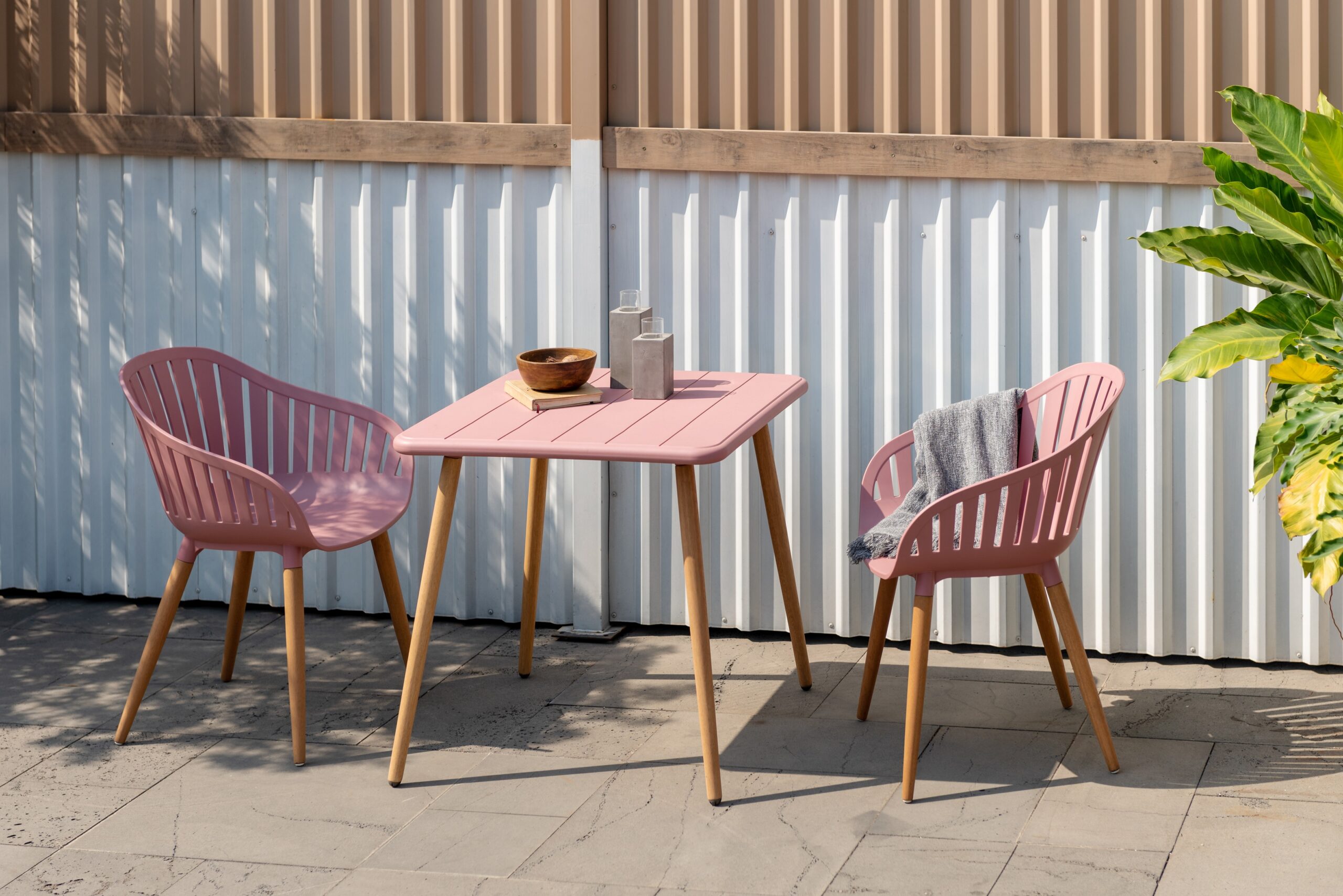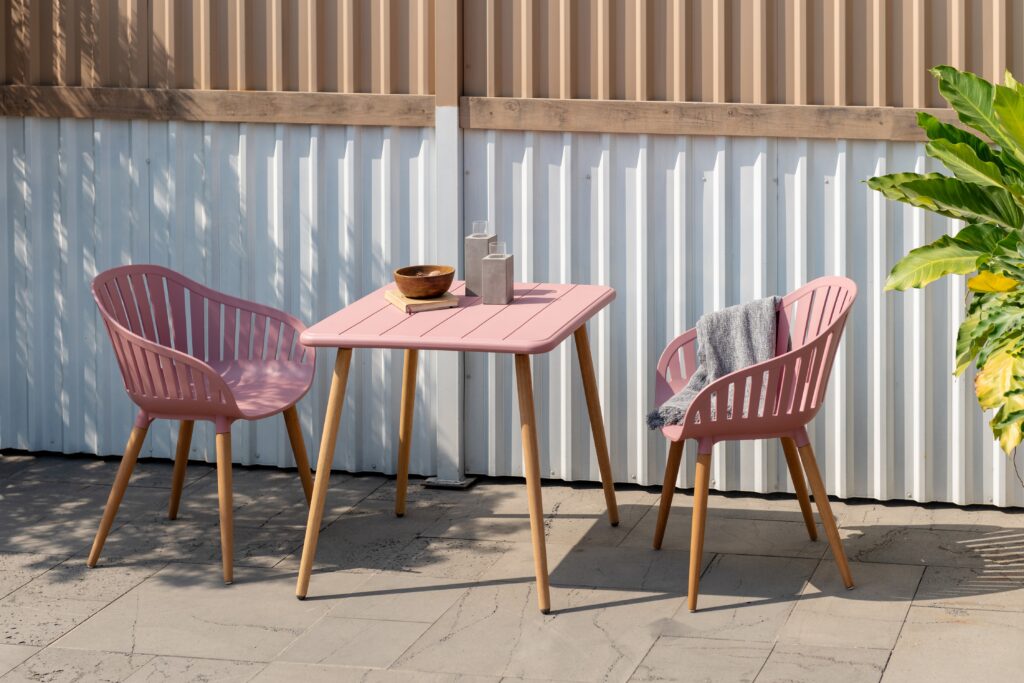 The world is in turmoil again with yet another humanitarian crisis making waves across the globe. Inevitably, this causes consumers to reflect on the plight of others and consider the poverty and dire situations that aren’t currently hitting the headlines, whilst hopefully asking what they can do to help. Here one of the UK’s leading outdoor furniture manufacturers, LifestyleGarden®, highlights the change it is trying to bring to people’s lives across the globe by supporting organisations like Plastic Bank, and how retailers can make a difference through responsible decisions about both their plastic usage and the products they choose to carry.
The world is in turmoil again with yet another humanitarian crisis making waves across the globe. Inevitably, this causes consumers to reflect on the plight of others and consider the poverty and dire situations that aren’t currently hitting the headlines, whilst hopefully asking what they can do to help. Here one of the UK’s leading outdoor furniture manufacturers, LifestyleGarden®, highlights the change it is trying to bring to people’s lives across the globe by supporting organisations like Plastic Bank, and how retailers can make a difference through responsible decisions about both their plastic usage and the products they choose to carry.
Too often, people and circumstances can be forgotten when they are out of a news cycle and we carry on with our lives but there is still an enormous amount of poverty, pollution, and people existing in dismal situations. That is why organisations like Plastic Bank are so vitally important, as they strive to give back to communities and help people find a way out of poverty, whilst also clearing the world’s waterways of plastic waste. It’s also why sustainable furniture manufacturer, LifestyleGarden® has teamed up with Plastic Bank to create a new version of its iconic Nassau collection, made exclusively from Social Plastic®.
Sustainability and having a positive impact on the planet is at the heart of everything LifestyleGarden® does – from reducing waste and the consumption of resources and energy, to ensuring its colleagues are well-educated about environmental issues. As many retailers will know, this is a cause very close to the heart of LifestyleGarden®, who shook up the outdoor furniture market with the introduction of its DuraOcean® chair in 2019, repurposing plastic marine waste into stylish garden furniture. Since its launch, DuraOcean® has helped to recycle more than 204,000kg (240 tonnes) of ocean plastic – and this journey continues today. Now this new collaboration with Plastic Bank and the use of Social Plastic® takes this quest to make a difference to the next level and gives consumers the chance to effect real change in the lives of people who are struggling; helping to help build a brighter future for people in poverty.
What is Social Plastic®?
If you’ve never heard of Social Plastic®, then prepare to have your eyes opened to a game-changing initiative. Social Plastic® is ethically sourced recycled material that drives environmental,
social and economic impact. Local collectors in vulnerable coastal communities exchange plastic waste for premiums to help them provide basic family necessities such as groceries, cooking fuel, school tuition, and health insurance. Plastic Bank is literally turning plastic waste into gold by creating ethical recycling centres in coastal communities across the globe, where the materials can then be reprocessed for reintroduction into the manufacturing supply chain.
In simple terms, local people join Plastic Bank as collectors, gathering plastic waste that has been dumped in coastal locations; thus preventing it from polluting waterways. When collectors take their plastic to a Plastic Bank collection branch, the materials are sorted by colour, type, and are weighed. The value is then exchanged for premiums that can be used for basic family necessities, such as groceries, cooking fuel, school tuition, and health insurance. Collected material is reborn as Social Plastic®, which can be sold to manufacturers and reintegrated into new products and packaging, creating a closed-loop supply chain.
Plastic Bank has intentionally established these collection centres in countries with extremely high rates of plastic pollution and poverty. Where the lack of disposal infrastructure and greater dependency on single-use packaging results in a disproportionate amount of pollution. Currently, Plastic Bank operates in Brazil, the Philippines, Indonesia, Egypt, and Haiti. It refers to this global network of mini recycling markets as an ecosystem that empowers disadvantaged communities and helps them to transcend poverty by providing an opportunity to collect and trade plastic waste as a currency.
So, what’s the catch?
There isn’t one. Even though Social Plastic® costs a little more than virgin plastic, its perceived as value for money because t provides a social benefit. This incentive increases the recycling rate for ocean-bound plastic, whilst giving collectors a path out of poverty. With this story and value attached to Social Plastic® products, consumers will see the worth in paying more while also giving more significant consideration to the retailer for stocking ranges that demonstrate social responsibility.
What does this mean for LifestyleGarden®?
Always keen to use as much recycled content in its outdoor furniture as possible, LifestyleGarden has now launched a range of Nassau Social Plastic® furniture. The range boasts all of the same benefits as the original Nassau collection – a stylish, vibrant set of outdoor and indoor furniture with extreme weather resistance and complete recyclability at end of life. Within this new collection, however, every Nassau chair will be made from the equivalent of 175 recycled plastic bottles, with each chair directly contributing to vulnerable communities supported by Plastic Bank. In fact, LifestyleGarden® has such faith in the popularity of this set and the value Social Plastic® will have to modern consumers, the company has set a target of recycling five million plastic bottles through its Social Plastic® range in 2022.
How can my business make a difference?
- Educate yourself
As well as ‘No Poverty’ and ‘Zero Hunger’, one of the United Nation’s (UN) 17 Sustainable Development Goals is ‘Life below water’; a target to prevent and significantly reduce marine pollution of all kinds, in particular, from land-based activities. Plastic pollution spilling into waterways has a serious detrimental impact to the health of people living in poverty. Consumer concern in the UK with the environment, pollution, climate change and social responsibility has been steadily rising over the past 30 years. According to the Horticultural Trades Association (HTA), “this concern has not been hit by the pandemic and is as high as it has ever been!” Your customers are educating themselves and will continue to expect more from the brands they buy and the retailers they buy from.
Take time to find out more about some of these issues via organisations like Greenpeace and Plastic Bank, or join the UN this month with its virtual commemoration of The International Day for the Eradication of Poverty.
- Reduce your own plastic usage
According to a recent Greenpeace report, the UK is a major contributor to the world’s plastic crisis, generating more plastic waste per person than any other country, except the USA. Our recycling system is already overwhelmed with plastic waste and is now causing harm to citizens and the environment in other countries. As the volume of plastic waste generated each year vastly exceeds the UK’s capacity to recycle it, individuals and businesses need to actively reduce their usage now. Calculate your plastic footprint here and you may be in for a surprise.
- Work with organisations that are making a difference
There are plenty of opportunities to partner with or support charities and enterprises that are effecting change in the world. From small things like making regular donations or offsetting your plastic footprint, to something that will have an even bigger impact, like a business partnership.
- Provide your customers with socially responsible ranges
Shape your offer so that you are giving your socially responsible and eco-savvy customers a choice of products that adhere to their values. And, be sure to shout about it! These consumers translate their concern for social and environmental problems into their purchasing decisions and consumption, so if you want them to spend money with you, show them that you are taking action and making responsible decisions about the brands and ranges you sell.
In short, make sure your business and what you do is having a positive impact on the planet and the people within it. This is going to become an increasingly important issue for consumers going forward and can create some real opportunity for retailers, so don’t get left behind.
Find out more
To find out more about LifestyleGarden®’s market-leading ranges please visit www.lifestylegarden.com. You can also learn more about ScanCom and its commitment to a more sustainable future by visiting www.scancom.net
Ends
Words: 1,337
About Plastic Bank
Plastic Bank® empowers the regenerative society. We are helping the world stop ocean plastic while improving the lives of collector communities. Plastic Bank builds ethical recycling ecosystems in coastal communities and reprocesses the materials for reintroduction into the global manufacturing supply chain. Collectors receive a premium for the materials they collect, which helps them provide basic family necessities such as groceries, cooking fuel, school tuition, and health insurance. Plastic Bank’s Alchemy™ blockchain platform secures the entire transaction and provides real-time data visualization – allowing for transparency, traceability, and rapid scalability. The collected material is reborn as Social Plastic® which can be easily reintegrated into products and packaging as part of a closed-loop supply chain. Plastic Bank currently operates in Haiti, Brazil, Indonesia, the Philippines, and Egypt. For more information visit plasticbank.com.
For more information, interviews or images please contact:
Kimberley Hornby, LifestyleGarden PR Team, Hornby Whitefoot PR
Tel: 07851 610573 Email: kimberley@hornbywhitefootpr.co.uk

